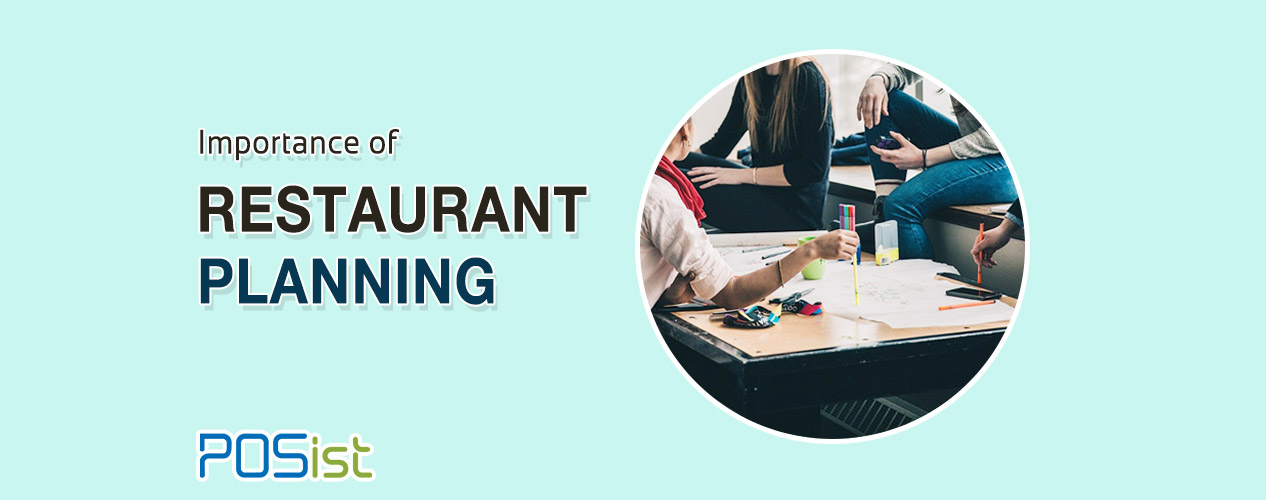Restaurants are an unpredictable space, with Murphy’s Law, anything that can go wrong will go wrong, very much applicable to the business. The astounding rate of failure in the restaurant business is a clear indication that something is amiss in the way restaurants operate. While there are many reasons why a restaurant fails, lack of planning and strategy is something that is often missed by stumped restaurant owners who keep thinking what went wrong. Of course, there are so many elements that contribute to the failure of a restaurant business, out of which most can be avoided if you have a clear plan and strategy that you follow religiously. Thus, there comes the need for a restaurant plan that would help you define your business, set benchmarks, and ultimately achieve your business goals. It is vital to have restaurant planning and design in place before you start.
What is the Restaurant Plan?
A restaurant plan is a guideline and a roadmap for your restaurant’s business. It includes everything, right from the minutest details to the critical decisions that you’d be making while running your restaurant. It is a blueprint that enlists that documents the following-
- Summary of the Restaurant
- Business Overview
- Industry Analysis
- Financial Analysis
- Operations Plan
- SWOT Analysis
- Marketing Plan
This article will tell you how to write a winning business plan for your restaurant.
The Importance of a Restaurant Plan
The objective of a restaurant plan is to define the business and enable you to understand the various aspects of running a restaurant. When you have a set plan with clear objectives, it is easier to implement them. Here’s what to include in a restaurant plan.
1. Realizing Your Vision
Before you start pitching your restaurant to the customers or the potential investors, you should first be clear about what you want to achieve. Deciding the format and the type of the restaurant is just one thing; do you want your restaurant to be a party place that the young crowd would hog, or a quiet retrieve that people would prefer spending time at? Would you focus on hospitality that customers would talk about even after they have left the restaurant, or have a specialty dish that would have people queuing up to get a table?
A restaurant plan would help you put your vision on paper and go a long way in making your restaurant dream a reality. Based on these decisions, you can go ahead and create a fantastic restaurant business plan that incorporates these visions into actionable objectives. While designing your business plan for a restaurant keep your vision in your head and plan out the entire thing accordingly.
2. Creating an Operational and Financial Plan
The primary aim of a restaurant business plan is to create an operational plan that enlists all the actions that you’d be taking to make your restaurant successful. Having a clear Business Overview ensures that you have a clear vision about the concept and theme of your restaurant, the kind of food you’d be serving, with a sample menu for reference, and the kind of service you’d be offering. Creating a restaurant plan also helps you estimate the number of employees you’d be needing.
You should also have a clear financial strategy that helps you keep track of the inflow and outflow of cash. Cash flow management is one of the biggest challenges of running a restaurant and must always be given prior thought. How would you be paying the rent, staff salaries, vendor payments, etc.? Ensure you make these decisions beforehand to avoid a cash crunch once you are knee-deep in the business.
3. Evaluating the Progress
Restaurant planning is important as it not only helps you create a roadmap to follow; it also helps you set benchmarks for your business and assess the progress. When you set timelines to your restaurant plan, you can also work to achieve the goals within the set duration. For example, if you plan to reach breakeven within the first year of operations, you should set the monthly sales target and measure it regularly to see if you are close to achieving your goal.
4. Mitigating the Risks & Analyzing Competition
In a restaurant business, there are many internal as well as external factors that could lead to the doom of your business. Thus, it is essential to do a SWOT (Strength, Weakness, Opportunity, Threat) analysis to foresee the opportunities and the risks that are involved in running a restaurant business. Now, a restaurant plan, as essential as it is, must always be followed strictly. Of course, they may be some factors that could lead you astray from the original plan, such as a new government regulation policy that forces you to change the way you operate. Your restaurant plan should also have the scope to accommodate these unpredictable factors so that they do not have a significant negative impact on the business.
A restaurant plan also helps you analyze the competition and the market trends and use them to channelize the USP of your restaurant. Restaurant planning and designing give you an idea about what you can expect in the future.
5. Proposal for Investors
Apart from the fact that a restaurant plan helps you develop a roadmap for running your business, it is a significant requirement if you are looking for external investment and funding for your restaurant. You need to have your restaurant business plan ready when you approach investors. It not only shows your seriousness and sincerity towards our business but also plays a significant role in communicating your ideas and strategy to the investors. If you are looking for a bank loan, you need to have your business plan along with all the necessary documents prerequisite. Read this article if you’re looking to raise funds for your restaurant business.
The need for a restaurant plan cannot be stressed enough. Of course, despite much planning and strategy, there are still many things that could go wrong. However, sticking to the designated plan and working consistently, is sure to generate positive results for your business. Hopefully, we have given the answer to your what to include in a restaurant plan question! Here is how you can write a restaurant business plan yourself.


















